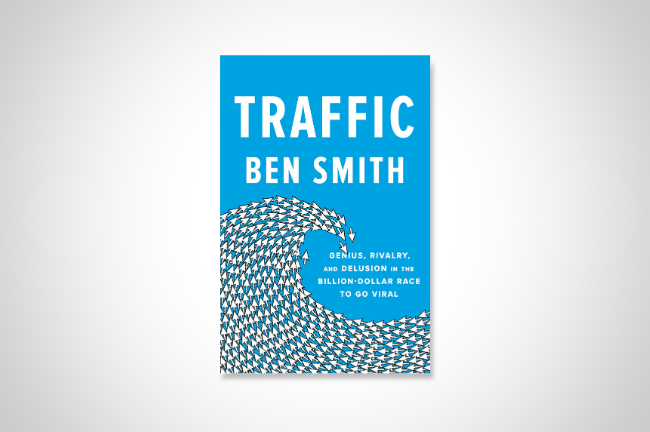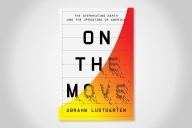You have /5 articles left.
Sign up for a free account or log in.

Penguin Random House
Traffic: Genius, Rivalry, and Delusion in the Billion-Dollar Race to Go Viral by Ben Smith
Published in May 2023
The digital news and online education ecosystems have evolved across similar timelines. In the years that journalism has been moving from print to digital, the only areas of postsecondary growth (nationally) have been in online learning.
I read Ben Smith’s new book, Traffic: Genius, Rivalry, and Delusion in the Billion-Dollar Race to Go Viral, through an awareness of the parallel digital trajectories of journalism and education. In reading Traffic, I kept returning to questions about what the rise and fall of BuzzFeed, HuffPost and Gawker might teach us about the possible futures for higher education.
Traffic tells interrelated stories about online news, none of which I knew well. While I was vaguely aware of BuzzFeed, Gawker and their founders, Jonah Peretti and Nick Denton, neither was part of my information diet.
If you are on Facebook (I’m not), you probably know BuzzFeed for its listicles and polls. News junkies were undoubtedly consumers of BuzzFeed’s journalistic output—the online news organization at one point employed a couple of hundred global journalists and even won a Pulitzer. In the same month that Traffic was published, BuzzFeed announced that it was shutting down its news operation. Gawker had been essentially killed a few years earlier by a $140 million libel judgment from a lawsuit related to the site publishing a Hulk Hogan sex tape, with that lawsuit secretly funded by billionaire Peter Thiel.
All these stories are expertly told by Ben Smith, the right person to place the narrative of digital news within a broader cultural and business context. Smith went from Politico to start BuzzFeed News, leaving in 2020 to become the media columnist at The New York Times. (He left in 2022 to co-found the online news site Semafor.)
A crude way to summarize the BuzzFeed/Gawker story is that free, online advertising–funded news lost and paid, subscription-based online news has won. BuzzFeed News is dead, while the digital operations of The New York Times and The Washington Post thrived once they got the mix of open and paid (subscriber-only) content right.
Another way to look at the digital news story is that the platforms that rely on user-generated content have become dominant. Facebook, Instagram, TikTok and YouTube can be enormously profitable because they spend so little to create content, while their scale creates data that enable targeted advertising.
A few thoughts about how the story of digital news, as told in Traffic, might relate to higher education. In classic digital news fashion, I'll share these thoughts as a bulleted list:
- It is unclear whether scale is a viable business model for online certificates and other nontraditional credentials. Just as the online news world was never able to translate eyeballs (traffic) into enough revenue to support journalists and journalism, it may be that low-cost, non-credit-bearing online certificates will never generate enough dollars to support educators and universities.
- Universities should not assume that educational platform providers will always be a necessary part of their business models. BuzzFeed believed that Facebook needed them for content, and the site built a business based on the social sharing of its content. When Facebook deprioritized website links for user-generated content, BuzzFeed’s advertising revenue dried up. Can we imagine education platform companies such as Coursera and edX creating their own educational content (courses/degrees) or partnering with companies and not universities to develop and brand those educational products?
- The New York Times’ path to financial viability and cultural impact required the integration of digital journalism into the core of the news operation. At first, the Times separated its digital from its print news operation. The business became financially resilient only when publishing news on the Times digital platforms became just another part of the reporting, and the digital teams integrated with the other news gathering and reporting structures.
The conference I want to attend and the book I want to read would unite academics and journalists to discuss our shared digital futures.
What are you reading?







